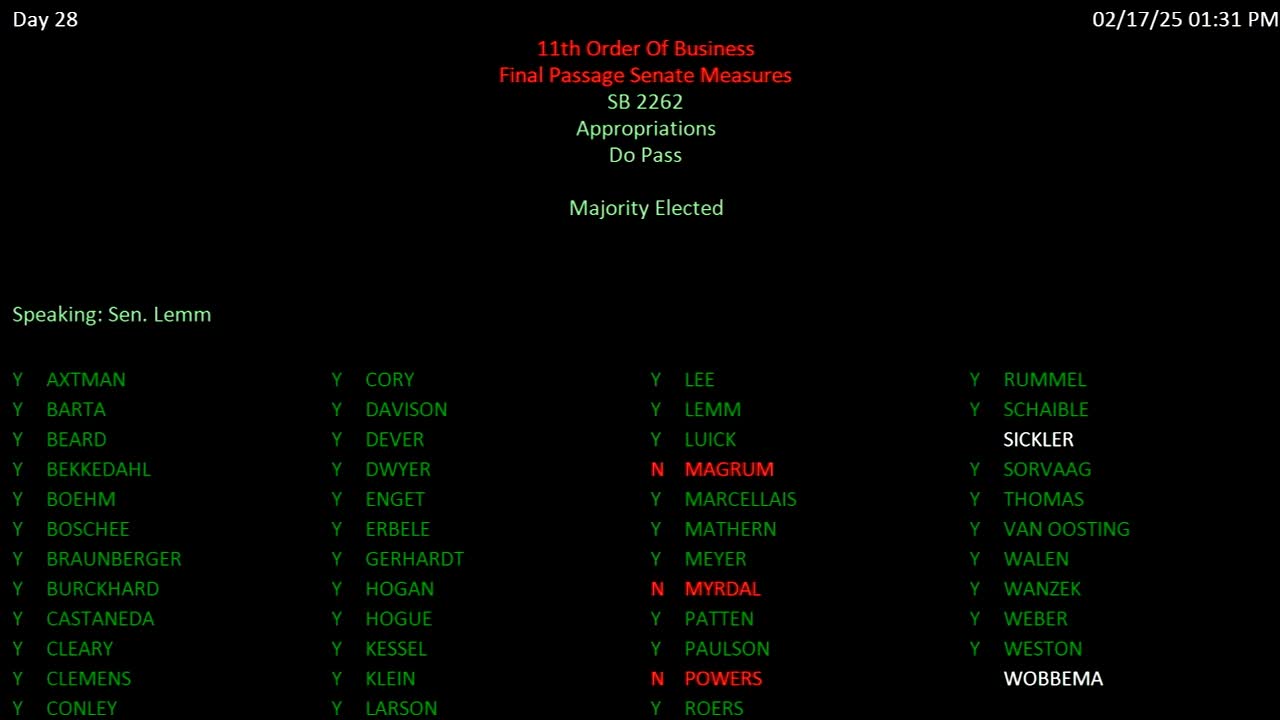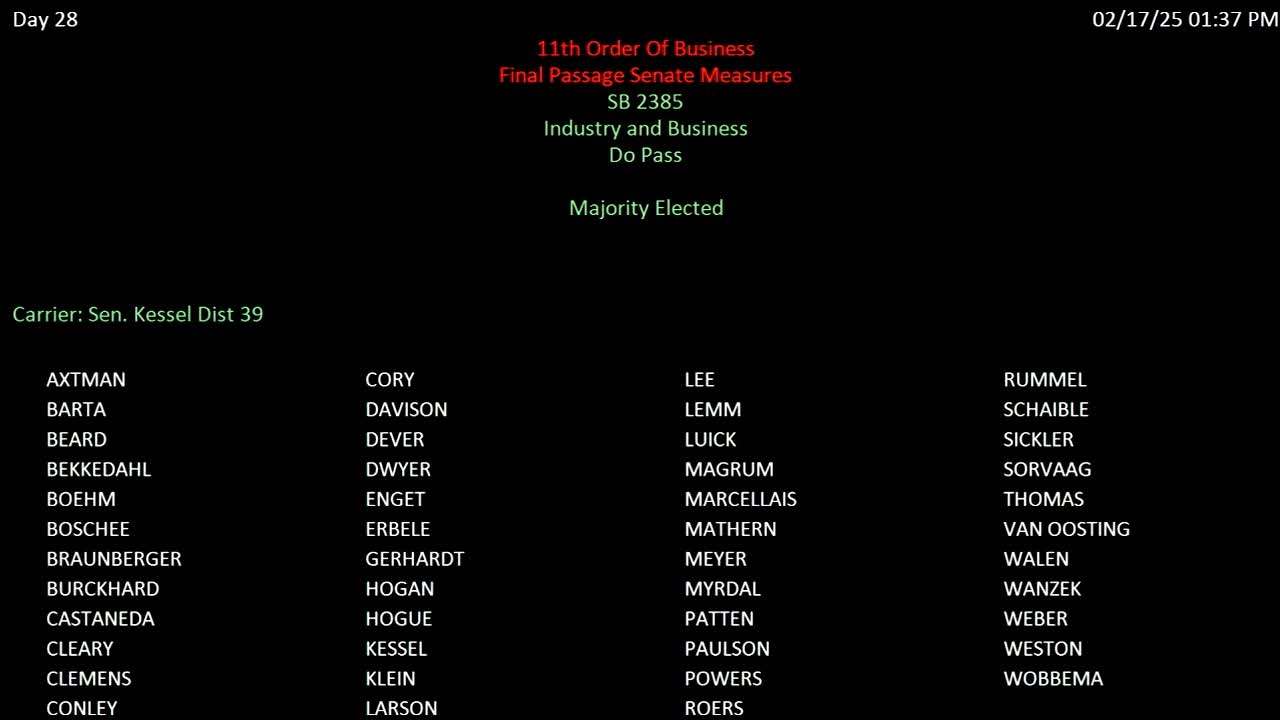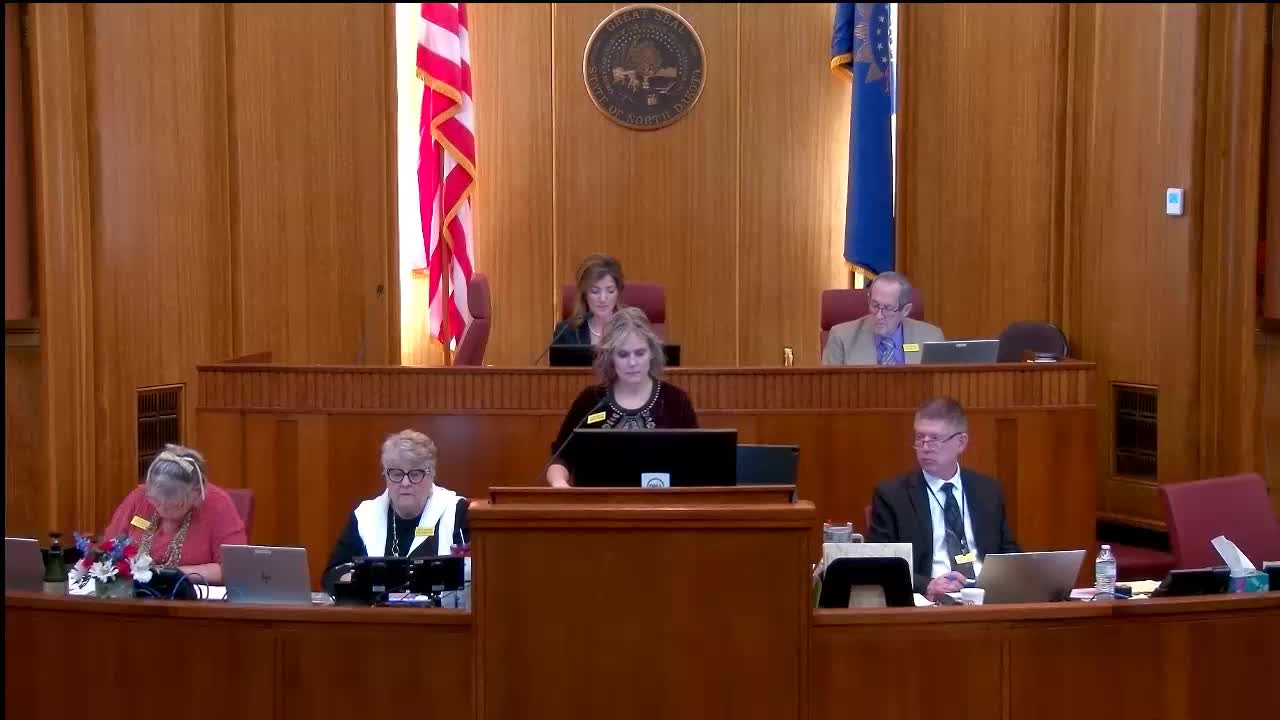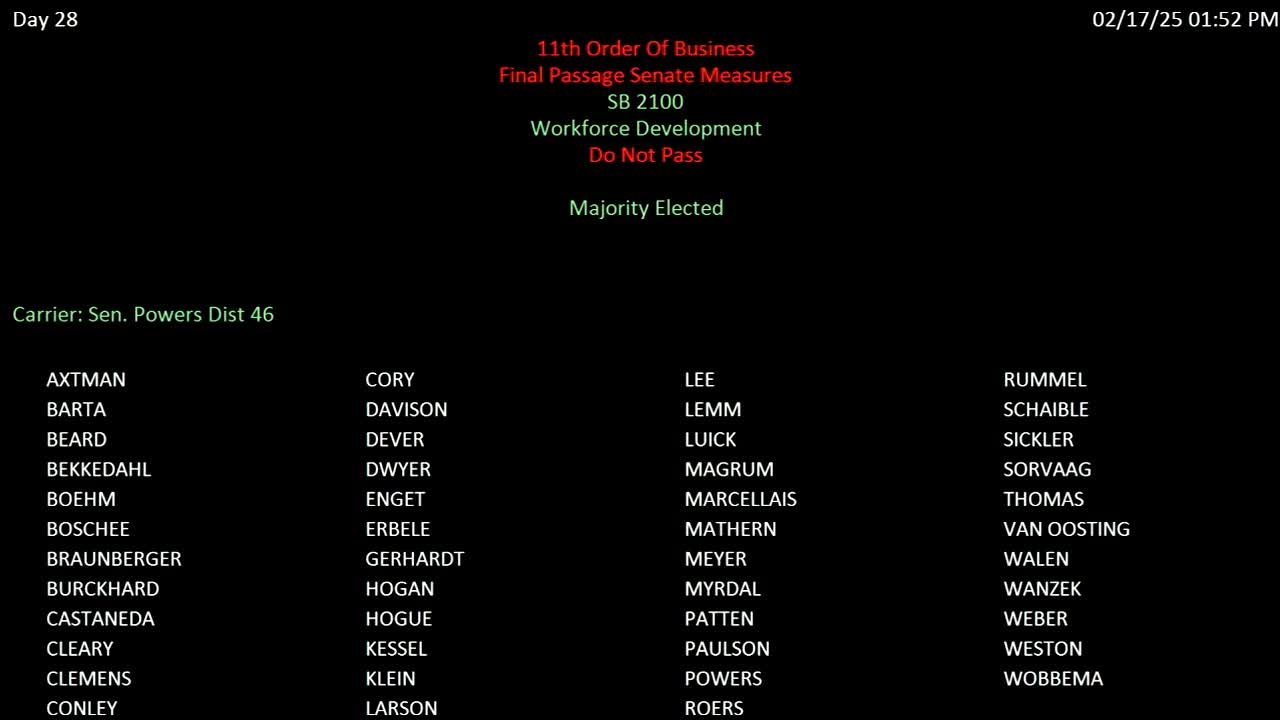Article not found
This article is no longer available. But don't worry—we've gathered other articles that discuss the same topic.

Senate at a glance: key votes, Feb. 17, 2025

Senate passes bill establishing receivership and tenant protections for mobile home parks

Senate defeats several bills aimed at restricting foreign-adversary development and investments

